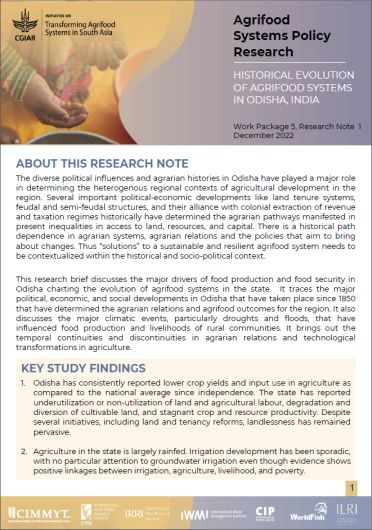Agrifood systems policy research: historical evolution of agrifood systems in Odisha, India
Abstract
The diverse political influences and agrarian histories in Odisha have played a major role in determining the heterogenous regional contexts of agricultural development in the region. Several important political-economic developments like land tenure systems, feudal and semi-feudal structures, and their alliance with colonial extraction of revenue and taxation regimes historically have determined the agrarian pathways manifested in present inequalities in access to land, resources, and capital. There is a historical path dependence in agrarian systems, agrarian relations and the policies that aim to bring about changes. Thus “solutions” to a sustainable and resilient agrifood system needs to be contextualized within the historical and socio-political context. This research brief discusses the major drivers of food production and food security in Odisha charting the evolution of agrifood systems in the state. It traces the major political, economic, and social developments in Odisha that have taken place since 1850 that have determined the agrarian relations and agrifood outcomes for the region. It also discusses the major climatic events, particularly droughts and floods, that have influenced food production and livelihoods of rural communities. It brings out the temporal continuities and discontinuities in agrarian relations and technological transformations in agriculture.

